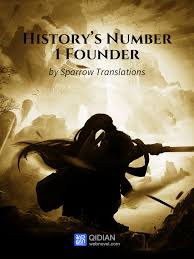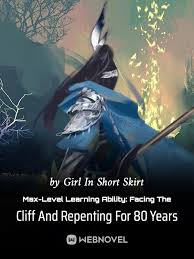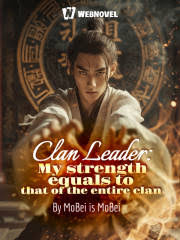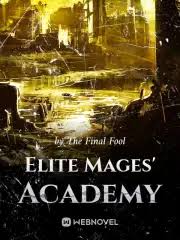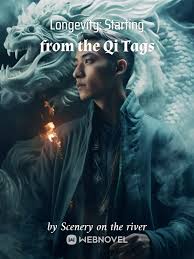The Story in 3 Sentences
Lin Feng awakens in a cultivation world armed with a system that tasks him with founding the greatest sect in history, forcing him to navigate a chaotic landscape of ancient clans, demonic threats, and rival prodigies.
His journey shifts from scattered early exploits to a focused mission of institution-building, blending transmigrator knowledge with ruthless pragmatism to outmaneuver enemies and elevate his disciples.
The story arcs toward legacy, as Lin Feng’s sect becomes a beacon of innovation and power, challenging the very foundations of the cultivation world’s hierarchy and tradition.
Why It Stands Out
1. System Meets Sect-Building Genius
Unlike typical xuanhuan tales fixated on solo ascension, this novel centers on collective growth—Lin Feng doesn’t just level up; he architects an entire ecosystem of talent, resources, and doctrine, turning his sect into a living weapon against fate itself.
2. Meta-Homage with Muscle
The narrative weaves in familiar archetypes—Xiao Yan, Shi Hao—but recontextualizes them not as cameos, but as disciples shaped by Lin Feng’s vision, creating a layered commentary on legacy, influence, and the cyclical nature of cultivation tropes.
3. Strategy Over Spam
Combat isn’t just about qi explosions; it’s logistics, research, and psychological warfare. Lin Feng plans like a grandmaster, using terrain, timing, and even economic pressure to dismantle foes who rely solely on raw power.
Characters That Leave a Mark
There’s Xiao Budian – a once-fallen prodigy rescued and reshaped by Lin Feng, embodying the sect’s promise of redemption through discipline and unwavering loyalty.
You’ll meet Zhu Yi, who burns with quiet ambition to become the moral and martial exemplar of the sect, his internal fire matched only by his devotion to Lin Feng’s ideals.
And Eliard? They’re the one who bridges worlds—half-elf, half-human—whose legendary magical talent becomes both a diplomatic asset and a target, forcing Link to protect not just a friend, but a symbol of unity in a fractured realm.
The Flaws Fans Debate
Early chapters feel disjointed, as Lin Feng drifts between random encounters before fully committing to the system’s core mission.
The harem elements, while present, often lack depth—female characters orbit the protagonist more as admirers than equals with independent arcs.
Some readers criticize the protagonist’s near-flawless strategic mind, which can drain tension from high-stakes scenarios.
Must-Experience Arcs
Ch. 1–50: The Scattered Seed – Lin Feng tests his powers in minor conflicts, gathering early allies and stumbling upon the system’s true potential amid chaotic frontier politics.
Ch. 300–350: The Disciple’s Trial – Zhu Yi and Xiao Budian face off against rival sect heirs in a tournament that exposes the fragility of old-world prestige versus Lin Feng’s engineered excellence.
Ch. 1400–1486: The Founding Legacy – With his sect now a continental power, Lin Feng confronts cosmic-level threats and cements his doctrine as the new orthodoxy, closing his journey not with a battle, but with a blueprint for eternity.
Killer Quotes
“To found a sect is not to gather disciples—it is to forge a new law of the world.”
“Legacy isn’t written in stone. It’s carved by those who dare to teach the sky a new name.”
“The strongest foundation isn’t built on peaks—it’s laid in the valleys where others refuse to dig.”
Cultural Impact
Fans coined the term “HN1F energy” to describe any story where a transmigrator builds institutions instead of just hoarding power.
The novel sparked debates on r/Wuxia about whether sect-building narratives represent evolution or exhaustion of the xuanhuan genre.
Its blend of system mechanics and classical cultivation earned it a cult following among readers tired of repetitive revenge plots.
Final Verdict
Start Here If You Want:
A refreshing twist on the overpowered MC trope—here, power is measured in disciples, not just destruction.
A meticulously paced rise from obscurity to myth, where every victory feels earned through planning, not plot armor.
A world that reacts dynamically to the protagonist’s innovations, making the setting itself a character in the story.
Study If You Love:
Narratives that explore institutional power as a form of cultivation philosophy.
Meta-commentary on genre conventions through reimagined archetypes.
The intersection of game-like systems and traditional xuanhuan cosmology.
Avoid If You Prefer:
Fast-paced, action-only storytelling with minimal world-building.
Protagonists who struggle emotionally or morally—Lin Feng is resolute, rarely doubtful.
Stories where romance drives the plot; here, relationships are secondary to legacy.
